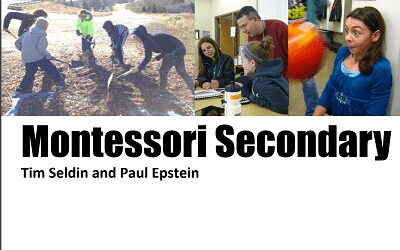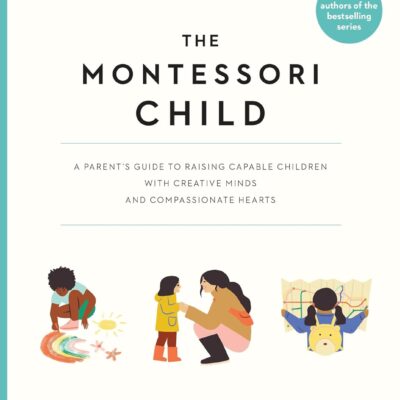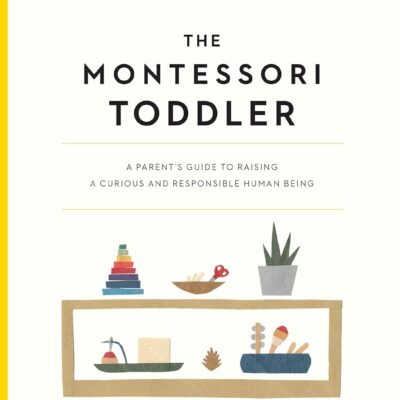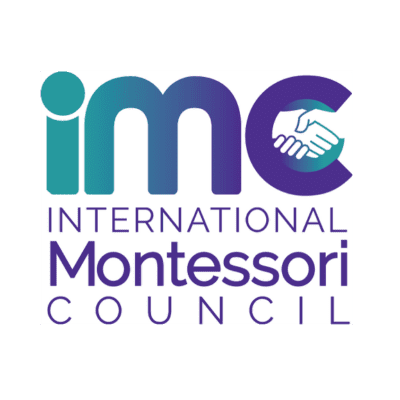Over the past decades, a constantly growing number of schools have approached the Montessori Foundation ready, willing, and anxious to begin the journey from being simply good Montessori schools to becoming great ones. We have called this process Building a world-class Montessori school.
This can be a daunting task. It normally requires several years of focused hard work, complex and difficult decisions, planning, and a considerable investment of resources. Once begun, the school cannot back off from its commitment to excellence. The school must be prepared to meet raised expectations among parents and staff and follow through on its commitments to the school community. This is not something to be undertaken lightly. It requires an absolute commitment to excellence. We recommend that you have this vision in mind as you begin your process of starting a school and hold it as your goal moving forward.
Principles Which Underpin Excellence
We have found several principles to be critical in building a Montessori School that is truly world-class.
PRINCIPLE 1: An uncompromising commitment to excellence.
World-class Montessori schools make an uncompromising commitment to becoming excellent in all areas of their programs, facilities, resources, and operations. They clearly define their identity, mission, and core values. They seek out and turn to examples of true excellence in Montessori practice around the world.
They consciously define what excellence will look like in every aspect of their programs, facilities, and operations. They have plans for how they will create and maintain this excellence in each area of school operation.
They have determined what it will cost to create and sustain excellence in all areas and have developed a plan for funding it.
PRINCIPLE 2: Institutional memory and integrity.
World-class Montessori schools ensure a strong sense of institutional memory and integrity within the school.
A school lives in the minds and vision of a group of people. No school can be great without a clear sense of its core values and the institution’s culture: this is who we are and how we do things here. World-class Montessori schools are not generic Montessori schools – they have a unique identity.
The character of any school will evolve, but it should evolve slowly and in a logical progression of maturation. Unfortunately, it is all too easy for Montessori schools to make compromises that threaten the integrity of their program because of tight budgets, lack of parent understanding and support, or because Montessori trained teachers are hard to find. Sometimes schools lose their clear identity because they grow too fast, adapting an initial vision to accommodate market pressures or to capture a growing market in a new area.
What we say our school does, and the principles we believe must be translated into day-to-day reality. A great school stands for something distinct. It cannot possibly please everyone. The school that some deeply respect and admire will not appeal to others.
PRINCIPLE 3: Clearly stated mission, core values, and educational beliefs.
World-class schools carefully define and write the school’s mission, core values, and educational beliefs. All policies and strategic decisions are based on these core values.
Many people assume that Montessori means the same thing to everyone. This is, however, not true. There is a wide variety in the way Montessori is applied. Unless a school can clearly define its unique character and understanding, parents, staff, and the wider community may become confused about the disparity between their assumptions and what the school is actually offering.
The ideas that define the nature of a school are the very soul of the school as an institution. It is essential to have a clear understanding and agreement about your mission, vision, and core values. Only by going through this process to develop clarity and consistency from class to class and level to level can you discover and define the school’s true nature as you want it to be.
PRINCIPLE 4: Consistency in philosophy and practice throughout the school.
World-class Montessori schools ensure that the school is consistent in philosophy and practice from class to class, from one level to the next, and from year to year.
Many Montessori schools are made up of individual teachers who do their own thing in their classrooms, without much awareness or concern about coordination with the other classes within the school. As a result, it is not unusual to find Montessori schools made up of several classrooms that bear little resemblance to one another. Parents and teachers often hold very different perspectives of the school’s mission, philosophy, and priorities.
For a school to grow and enjoy respect, parents should be confident that their children’s experience in the school will be highly consistent from year to year, from one class to another, and from one level to the next.
PRINCIPLE 5: Leadership by an inspiring and consensus building Montessori leader.
World-class schools have an inspiring and consensus-building Montessori Leader. Montessori schools that wish to remain faithful to their legacy need to be led by a first-rate Montessori educator. Being true to the underlying principles that distinguish them as Montessori programs, world-class schools will be based on a different set of assumptions and beliefs about the nature of learning, the definition of what constitutes a first-rate education, and the relationships among students, educators, families, and school to that on which excellent conventional schools will be based.

Research has consistently shown that the Head of School is the most influential person in any school. In great schools, the Head of School is, above all, a visionary who articulates and represents the school’s core values and educational philosophy. They are not simply an administrator or business manager. Such skills are essential, but administrators and managers are not necessarily leaders and can be hired more readily than a great educational leader. A first-rate Montessori Head of School can build a school from the ground up.
It is rare to find someone who is both a sophisticated independent school leader and trained and committed to Montessori education. While many non -Montessori trained educators can glibly espouse a Montessori -like philosophy and values, few understand or pay much more than lip service to it in practice. A Head of School who is not Montessori in both training and philosophical orientation will generally be ineffective as the school’s educational leader, may quickly get into conflict with the faculty, or in some cases will lead the school away from Montessori toward a traditional educational program.
Can you imagine asking a Catholic priest to run a Baptist church-affiliated school or a rabbi to head a school run by Quakers? Even with all the goodwill in the world, they are unlikely to share the school community’s culture, traditions, and values; and would not be likely to be seen by faculty and parents as appropriate leaders for this school.
At their core, authentic Montessori schools are based on an educational philosophy and system of beliefs as distinct as those of any school that promotes a specific religion or a culture quite different from the one held by most people in the local community.
All too many fine Montessori schools have suffered through a series of weak or disruptive leaders after the founder retires. In almost every case, these Heads of School were neither Montessori trained nor Montessori oriented in their educational philosophy or leadership style. We can all name non-Montessori-trained people who are highly effective Montessori leaders. However, each is ‘Montessori’ in everything but a teaching credential; each is genuinely committed to the Montessori vision.
We strongly believe that Montessori schools need sound Montessori leadership to thrive. Not doing so endangers the integrity and future of the school.
PRINCIPLE 6: Clear line of authority and accountability within the school.
World-class Montessori schools have a clear understanding of accountability and how it is embodied in a line of authority in the school.
Once a Head of School has been hired, she should oversee the entire school. All faculty and staff members should report to the Head of School. The Head of School should have clear day-to-day authority over the school’s programs and practice.
If there is a school Board, it is critical to clearly define the authority of the Head of School in contrast with that of the Board. All too often, confusion results when the roles of the Board and the Head of School are not clearly defined. It is not uncommon to see Board members performing administrative functions or making decisions more appropriately by the Head of School. This can lead to mistrust and conflict among the Head of School, the Board, and the faculty. This has the very real potential to destabilize the school.
Heads of School must be given the authority to manage the school within very broad guidelines established by the Board. For your school to continue along the lines of a caring, supportive, empowering community, it will always be essential to have a Head of School with the right balance of perspective, values, philosophy, skills, and experience. Finding the right person when you need one for your school is no mean feat.
PRINCIPLE 7: Admissions process – focuses on finding the perfect match.
World-class Montessori schools prioritize designing admissions processes that find families for whom the school is a perfect match. This contrasts with policies aimed at simply filling openings.
The process of admissions must be a Montessori school’s single biggest priority. The goal should not only be to fill each opening and thus meet our budget, but to gather children who will blossom within a Montessori setting, with families for whom the school is almost a perfect match with their values and long-term goals for their children.
Relatively few parents leave Montessori because of cost per se or are particularly unhappy with what the school has done. More often than not, they leave because they do not understand the benefit of a Montessori experience as opposed to the convenience and relatively lower cost of public schools. Whether they decide to move their children to a more traditional private school or the local public schools, parents leave Montessori because they have not been convinced that our schools offer their children opportunities for intellectual and social growth that are equal to and better in some unique way than the other schools in the community.
Too many families place their children in Montessori with little or no knowledge of what it is and what it offers, and certainly with no real thought given to any relationship beyond the next year or so. These families are simply looking for the best opportunities for their children, with no special commitment to Montessori education or as a specific school.


Montessori schools, however, need to find people who are willing to work with us as partners. We need families who share core values and goals for their children’s education that are compatible with the school’s. Ensuring that they stay with the school, it is important to challenge them to think long-term, weighing out carefully whether Montessori is the right fit for both their children and their family’s values before they enroll.
PRINCIPLE 8: Parents are kept very well informed about their children’s progress.
Parents expect to have many points of tangible and meaningful evidence confirming the wisdom of their decision and the effectiveness of the education that their children are receiving. World-class Montessori schools keep parents very well informed about their children’s education and academic progress.
Most parents do not simply look for academic evidence alone. We should not underestimate how vital social opportunities and extracurricular programs are to most children and parents. World-class Montessori schools find multiple ways to communicate with parents on an ongoing basis.
PRINCIPLE 9: Stable enrollment
Attrition refers to a reduction in enrolment from children leaving for reasons other than graduation. World-class Montessori schools work to reduce attrition from year to year. This means that the school actively works to retain students once enrolled. To be truly effective, the Montessori program requires that children stay for a full three-year cycle at the very least. Elementary programs depend on their success on children moving through from the 3 -6 program. Adolescent programs are designed to meet the needs of children who have had Montessori elementary experience—losing children before the end of a cycle and admitting children without previous Montessori experience at successive cycles impacts a school in several ways.
Firstly, children who leave early may not fully integrate their learning and may reflect poorly in-regard-to learning outcomes. This could create a negative opinion about the school. Secondly, the class may be left without its leaders when children leave early. Montessori classes need a full age span of at least three years to function properly. While some attrition is inevitable because of parents leaving the area, ideally, schools should aim for attrition of no more than 10%.
PRINCIPLE 10: Deliberate financial planning ensures that the school is financially sound.
To be excellent, a school must be financially sound. To become financially sound, a school must have a budget, a good bookkeeping system, and a financial plan that focuses on funding growth.





